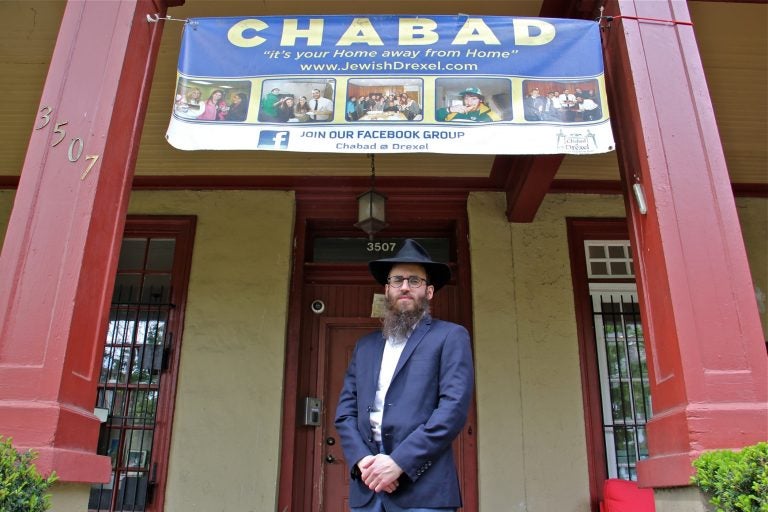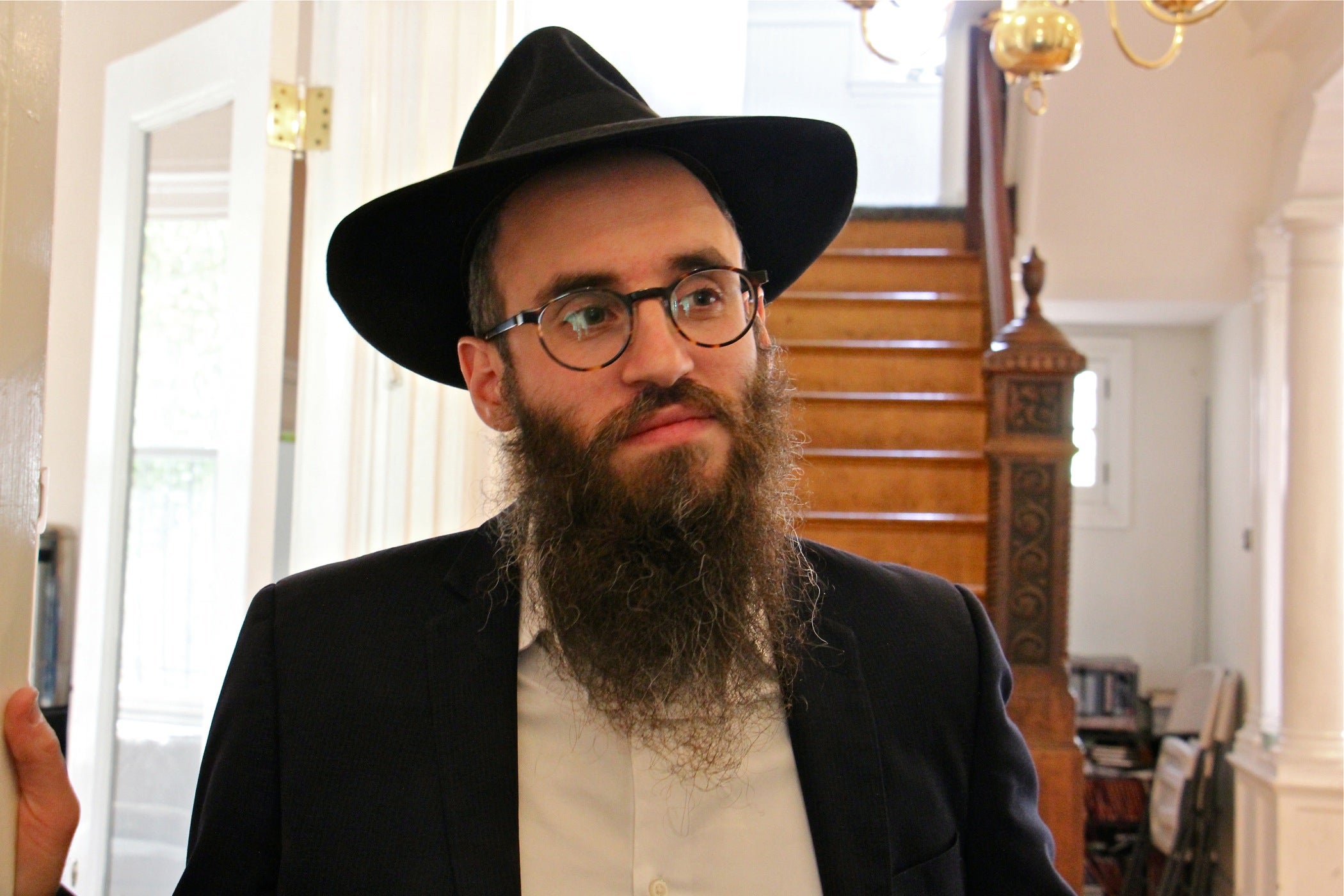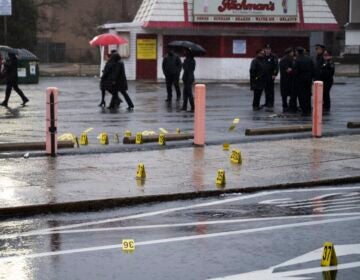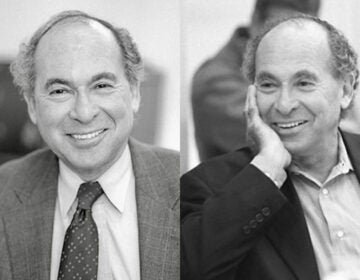‘Duties are duties’: Philly rabbi pushes on despite attack on uncle’s California synagogue
Rabbi Chaim Goldstein’s uncle lost a finger in the California synagogue attack. His courage has inspired Goldstein to persevere rather than mourn.

Rabbi Chaim Goldstein is the director of the Chabad House at Drexel University. His uncle, Rabbi Yisroel Goldstein, was injured in the shooting at Chabad of Poway synagogue in Southern California. (Emma Lee/WHYY)
As word circulated Saturday of another attack on an American synagogue, Rabbi Chaim Goldstein was thinking instead of the messianic age, the utopic era that Jews believe will accompany the arrival of a messiah.
It’s a topic that’s long intrigued Goldstein, but one that the students who attend his services at the Drexel University Chabad House often find too abstract.
On Saturday, the final day of the Jewish festival of Passover, the messianic age was the traditional topic du jour. Midway through the conversation, Goldstein saw some of the students huddled in a corner with his wife.
They eventually told him there’d been a deadly shooting at the Chabad of Poway Synagogue just north of San Diego. A rabbi had been injured and was in critical condition.
“Which rabbi?,” Goldstein wondered.
His uncle is the congregation’s founding rabbi. His wife’s brother-in-law also works there as a rabbi.
For the next two hours, Goldstein would have to make due with the scant information he had. On the Sabbath, religious Jews cannot use cell phones or any form of electronic technology.
Instead, with his mind racing, Goldstein continued the service.
“Duties are duties,” he said.
The conversation that followed would be the best he’s ever had during this annual meditation on the messianic age. In one of his faith’s darkest moments — and in one of his family’s most tortured hours — a conversation about goodness helped sustain him.
“Being able to have that information in my head — like facing that tragedy, that darkness and then speaking about the future, speaking about the potential, what we can do for that — was, in a certain sense, like a comfort,” Goldstein said.

Both of Goldstein’s relatives survived the shooting. One congregant, Lori Kaye, was killed.
Goldstein’s uncle, Rabbi Yisroel Goldstein, lost his right index finger in the attack. He gave a his heart-wrenching press conference afterward.
“My missing finger will forever scar me physically,” Goldstein told reporters. “But it’s going to remind me how vulnerable we are and also how heroic each one of us can be.”
It was a moment of uncommon poise and eloquence in the face of tragedy, but it didn’t surprise his nephew. The younger Goldstein has long admired his uncle, whom he said built the Poway congregation from nothing but an empty lot.
“He actually was one of my role models,” Goldstein said.
The attack on the Chabad of Poway Synagogue rippled across the globe, not merely because of its brutality.
Chabad-Lubavitch is a branch within the Hasidic Orthodox movement that focuses on convincing fellow Jews to adopt a more observant brand of Judaism. These efforts include outreach on college campuses and in countries around the world. The sect’s official website lists Chabad houses in Nepal, Kazakhstan, and Uganda — as well as 28 cities across Pennsylvania.
The work of these Chabad rabbis often brings them to places where Jews are uncommon or even unwelcome.
Goldstein said he’s spoken with Drexel University police about increasing security around the campus Chabad house. But wherever that leads, he vows it won’t compromise the house’s openness and its core function as a place that invites in strangers. The Drexel University Chabad house features a large banner out front and a conspicuously placed welcome mat. That won’t change.
“We’re soldiers,” Goldstein said. “And we have to keep fighting the battle.”
WHYY is your source for fact-based, in-depth journalism and information. As a nonprofit organization, we rely on financial support from readers like you. Please give today.





